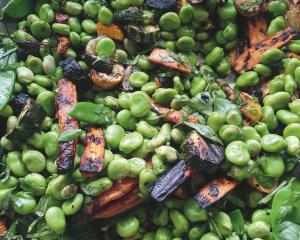A couple of New Zealand wines have been in the news in the past week for winning international trophies at the 2008 London International Wine Challenge.
Saint Clair Wairau Reserve Sauvignon Blanc, 2007 won the international sauvignon blanc trophy and New Zealand white trophy.
And Wild Earth Pinot Noir 2006 won the Central Otago pinot noir trophy, the New Zealand pinot noir trophy, the New Zealand red trophy and the international pinot noir trophy.
It's no surprise that these two varieties should do well as they are the two that New Zealand is known for overseas.
The London International Wine Challenge is one of the largest wine contests in the world, with more than 9000 wines entered and more than 370 judges.
If a wine does well, it may help sell the wine in the United Kingdom and elsewhere - but there are now similar wine competitions in many countries, from Hong Kong and India to the United States, Australia and New Zealand.
There are the usual bronze, silver and gold medals, a recommended category, good-value categories and more than 100 trophies, which range from regional awards such as best Marlborough pinot noir to best red and white from particular countries, such as best Argentina red.
This gives those who win something - more than a third of the entries - something to promote, although claims such as "best in the world" for the winner of an international varietal trophy are exaggerated.
As usual, most of the world's most highly acclaimed and expensive wines, such as classed growth Bordeaux and grand cru Burgundy, do not enter.
Of course, whether high acclamation over many years and enormous prices such wines can command makes them "better" than others is debatable.
A couple of times in recent issues of Decanter, a specialist British wine magazine, the same wine (in one case Cloudy Bay Te Koko and in another Ara sauvignon blanc) was rated as one or two stars in one tasting and as four or five stars in another elsewhere in the same issue!
It shows how widely divergent experts' opinions can be.
Wine tasting and appreciation is not an exact science, despite the scores out of 20 or 100 or whatever that some like to give wines.
It is always subjective, although experience and knowledge can help with consistency.
All those diverse opinions and taste preferences, as well as the huge variety of wine, make it so interesting.
Vive la difference!The International Wine Challenge is one of the many marketing tools, like wine columns and reviews, that producers and consumers can use to help promote or choose a wine.
Results are available on www.internationalwinechallenge.com












